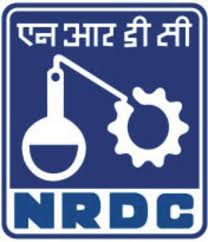MOU
NRDC enters into an MoA with Goodearth Global Ltd

New Delhi: No other country in the world knows it better than India that agriculture is at the heart of societal transformation. With the vigorous policy of Indian Prime Minister Narendra Modi to aggressively enhance India’s role in Africa, most Africans and African leaders are attracted to the Indian success story to uplift the vast majority of people in their countries, who continue to live and work in rural areas, principally as smallholder farmers. Their anxiety emerge out of the fact that in the absence of a flourishing agricultural sector, the majority of Africans will be cut adrift from the rising tide of prosperity, driven by the globalization forces.
It all started with an Indo-Ghana Pilot Research project for Tomato Production, launched in 2015. Solicited by the National Research Development Corporation (NRDC) to promote high yield Indian tomato varieties, the Government of Ghana provided three plots of five acres each in different regions in Kumasi, Ada and Navrongo. With financial support from the Ministry of External Affairs, the NRDC took up implementation of this $2-million project. Last month during the visit of Indian scientific delegation led by Girish Sahni, Director General, CSIR India, it was decided to expand the bilateral cooperation to the value added agriculture – which would include horticulture and cultivating high value aromatic and medicinal plants. Ghana also sought Indian help in boosting its rice and millet crops.
Goodearth Global Ltd., Accra, Ghana owned by Hyderabad-based international commodity trader Ch. Gopal entered in an agreement with the NRDC to grow Indian varieties of aromatic and medicinal plants over 3000 acres, leased out by the company for a period of thirty years. The Memorandum of Agreement was signed by Dr H.Purushotham, Chairman and Managing Director and Ch. Gopal on behalf of National Research Development Corporation (NRDC) and Goodearth Global Ltd respectively. Negotiations are in progress to expand the project to another 3000 acres to grow a fine-grained blast resistant paddy variety, christened ‘Telangana Sona’. One of the striking qualities of this paddy variety is that it can be raised in both winter and rainy seasons in a short duration of about 125 days. Rice is important to Ghana people but the low global prices caused no shipment from the Gulf of Mexico into Ghana creating serious supply shortage. The Ghana farmers seek help in growing rice themselves rather than suffering the vagaries of international trade.
Millets, particularly sorghum and pearl millet, are seen to have great potential to empower rural people in North, Upper East and Upper West. Ghana to increase income and food security through strengthened capacity to achieve higher and sustainable yields in sorghum and pearl production. The clear dependency of the Ghana on the agricultural sector, promotion of climate smart millets is seen as the most effective measure to mitigate Ghanaian farmers for the imminent climatic shocks.
News Must Read
- PESB Selects R Veerabahu as Director (Finance) for Braithwaite & Co. Limited
- Grew Energy bags largest order of 200 MW Contract of SECI's Auction
- CPCL Reports 39% YoY Drop in Q4 Net Profit, Declares Rs 55 per Share Dividend
- SJVN Limited inaugurates India's first Multi-purpose Green Hydrogen Pilot Project
- KRDCL, RVNL JV emerges as the Lowest Bidder for Redevelopment of Thiruvananthapuram Central Railway Station
- REC Ltd. has incorporated subsidiary company BPTL
- Hon’ble Vice President of India Confers `Outstanding PSU of the Year’ Award on HAL
- BharatPe Launches India’s first All-in-One Payment Device
- NBCC registers historical Performance in FY2023-24
- RuPay Unveils Link it, Forget it Campaign at IPL 2024 to Promote RuPay Credit Card on UPI